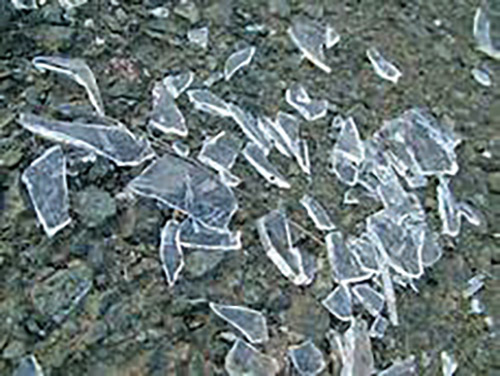
It’s too late. I’m too far gone. It’ll never be the same. How many times have we heard those words? Or, worse still, said them?
This week’s parsha tells the story of the Golden Calf, the worst national sin in the history of the Jewish people. Frankly, if I were the editor of the Bible I’d have left that part out. How humiliating to the Jews! Just weeks after the greatest revelation of all time, when they saw and heard God up front and personal, they go and bow down to a cow?! How fickle can you get? But the Torah is unflinchingly honest and records this most unflattering moment of ours in all its gory detail.
Why?
Perhaps the very important lessons we need to draw from this embarrassing episode are, firstly, that people do sin, human beings do make mistakes and even inspired Jews who saw the divine with their own eyes can mess up—badly. And, secondly, that even afterwards there is still hope, no matter what.
In the very same parsha we read how God tells Moses to carve a second set of tablets, to replace the first set he smashed when he came down the mountain and was shocked by what the Jews were up to. (Sort of “You broke them, you fix them”—like the guy who fell asleep during the rabbi’s sermon and the rabbi tells the shamash to go and wake the fellow up. The shamash says, “Rabbi, you put him to sleep, you wake him up!”) The Torah does not intend to diminish our respect for that generation, but rather to help us understand human frailty, our moral weakness and the reality of relationships, spiritual or otherwise.
God gave us a perfect Torah. The tablets were hand-made by God, pure and sacred, and then we messed up. So is it all over? Is there really no hope now? Are we beyond redemption? After all, what could possibly be worse than idolatry? We broke the first two commandments and the tablets were shattered into smithereens because we were no longer worthy to have them. It was the ultimate infidelity.
So Torah teaches that all is not lost. As bad as it was—and it was bad—it is possible for man to repair the damage. Moses will make new tablets. They won’t be quite the same as God’s, but there will be tablets nonetheless. We can pick up the pieces.
I once heard a colleague speak about the significance of breaking the glass under the chuppah (wedding canopy). Besides never forgetting Jerusalem and praying for her full restoration, this ceremony teaches a very important lesson about life to a bride and groom who are about to embark on their own new path in life. What happens immediately after the groom breaks the glass? Everyone shouts “Mazel Tov!” The message is clear. Something broke? Nu, it’s not the end of the world. We can even laugh about it and still be happy. Nisht geferlicht. Lo nora. This too shall pass. A very practical, peace-keeping tip for the new couple.
There are most definitely second chances in life. At my shul we run an adult education program called CAJE, the College of Adult Jewish Education, and the byline we use in the CAJE logo is Your Second Chance to Know. There are second chances and third chances too. Many Hebrew school dropouts have passed through our classes and, as adults, learned to read Hebrew from scratch. Today, some of our graduates can even lead the shul service and I am very proud of them and our program.
It is possible to pick up the pieces in life. Whether it’s our relationships with God, our family or our colleagues, we can make amends and repair the damage.
If the Jews could recover from the Golden Calf, our own challenges are small indeed.
Rabbi Yossy Goldman was born in Brooklyn. In 1976 he was sent by the Lubavitcher Rebbe, of righteous memory, as a Chabad-Lubavitch emissary to serve the Jewish community of Johannesburg, South Africa. He is Senior Rabbi of the Sydenham Shul since 1986, president of the South African Rabbinical Association, and a frequent contributor to Chabad.org. His book From Where I Stand: Life Messages from the Weekly Torah Reading was recently published by Ktav, and is available at Jewish bookshops or online.
By Yossy Goldman/Chabad.org









